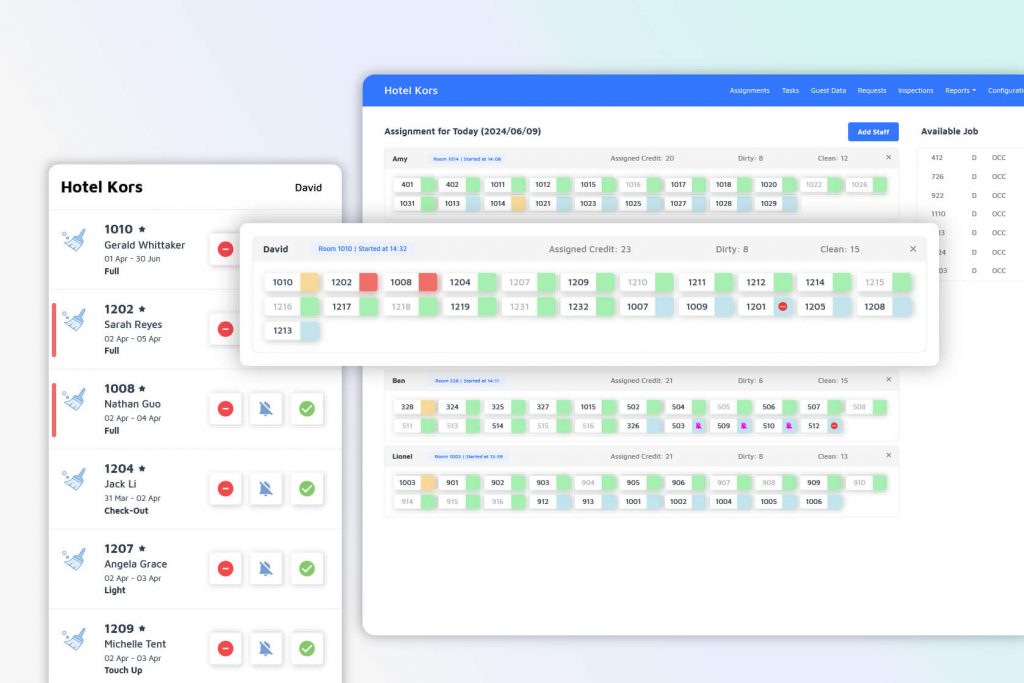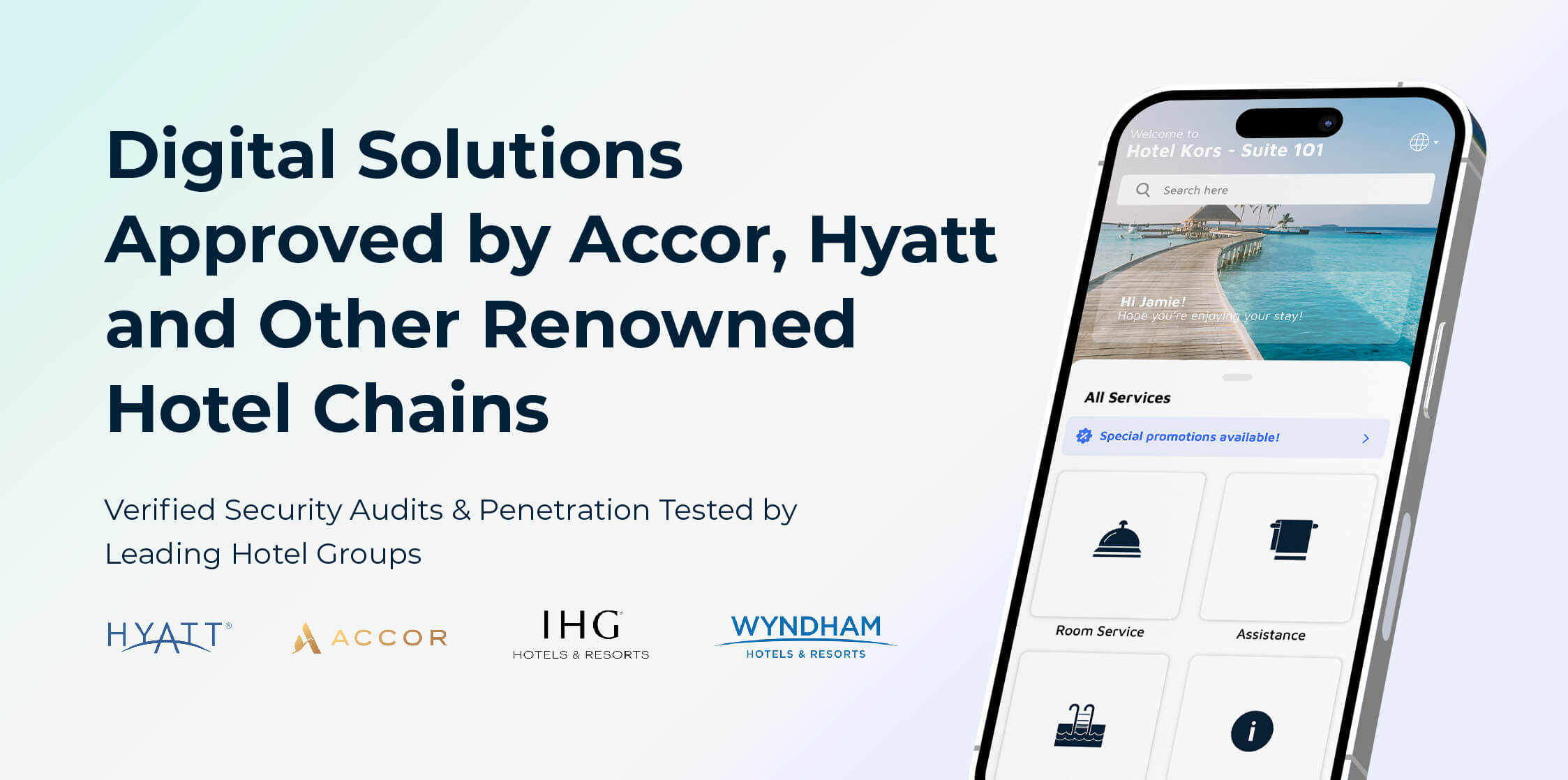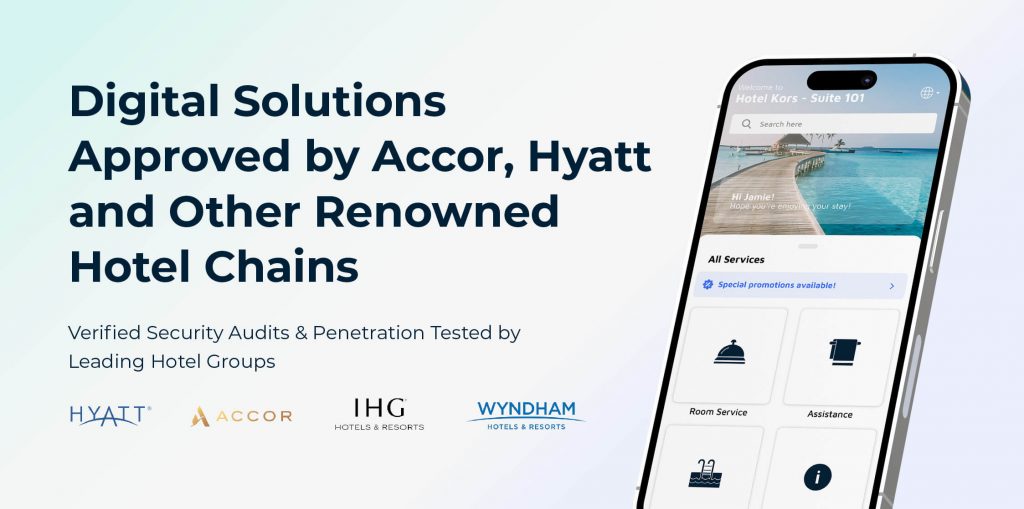
Everything You Need to Know About Data Analytics for Hotels
Introduction
Hotels are always under pressure to achieve operational efficiency and are on a constant quest to streamline their operations, cut costs, and provide exceptional guest experiences.
One of the most powerful tools to achieve these goals is data analytics.
By tapping into data, hotels can gain valuable insights, uncover hidden patterns, and make informed decisions that boost efficiency and profitability.
Despite its potential, data analytics remains underutilized in many hotels.
Often, hoteliers rely on intuition and traditional methods, missing out on the transformative benefits of a data-driven approach.
This article dives into the aspects of data analytics, exploring how hotels can leverage data to enhance operational efficiency.
We’ll cover what it means to be data-driven, identify the key types of data hotels should focus on, and provide practical steps for collecting, analyzing, and implementing data-driven insights.
We’ll also look at the role of Generative AI in data analytics, offering innovative solutions to automate routine tasks and predict trends.
By embracing data analytics, you can transform your hotel into a model of operational excellence.
What Does It Mean to Be Data-Driven?
Being data-driven means making decisions grounded in data.
For hotels, this involves integrating data into every facet of operations, from front desk services to housekeeping and maintenance.
A data-driven hotel constantly collects and analyzes data to identify trends, predict guest needs, and optimize resources.
What sets data-driven hotels truly apart is their culture. It’s not just about having the latest technology or software; it’s about fostering a mindset where data is seen as a vital asset.
Staff at all levels must be trained to understand the importance of data, ensuring that insights are shared throughout the entire organization.
Another often overlooked aspect is the importance of data integrity.
Ensuring that data is accurate, complete, and timely is critical.
This means implementing robust data governance practices, from regular audits to maintaining up-to-date data entry protocols.
Lastly, being data-driven is about continuous improvement. It’s not a one-time project but an ongoing process.
Hotels need to constantly refine their data collection methods, update their analytical tools, and stay abreast of the latest trends in data analytics.
By doing so, they can maintain a competitive edge and continually enhance their operational efficiency.
Types of Data Hotels Should Collect
To truly harness the power of data analytics, hotels need to focus on collecting a diverse range of data. Beyond basic metrics, hotels should delve into guest preferences, behavior, and feedback.
This includes data on dining habits, activity preferences, and even social media interactions. Operational data is equally vital.
Tracking housekeeping efficiency, maintenance schedules, and energy usage can reveal patterns that inform better resource allocation and operational planning.
Furthermore, analyzing booking trends, seasonality, and cancellation rates can help refine marketing strategies and improve occupancy rates.
Collecting granular, real-time data allows hotels to anticipate needs, personalize guest experiences, and drive efficiency in ways that traditional methods simply can’t match.
Methods for Collecting Data
Collecting comprehensive data requires a strategic approach.
Digital platforms are a cornerstone, with guest mobile apps and property management systems serving as primary tools.
These platforms can seamlessly gather data on guest interactions and preferences. Additionally, integrating Internet of Things (IoT) devices within the hotel infrastructure can provide real-time data on energy consumption, room occupancy, and equipment performance.
Surveys and feedback forms remain valuable, but hotels can enhance their effectiveness by embedding them in digital touchpoints like check-out processes or mobile apps.
Moreover, leveraging Wi-Fi analytics can offer insights into guest movement patterns within the property.
By adopting a multi-faceted data collection strategy, hotels can ensure they capture a holistic view of their operations and guest experiences.
Analyzing and Utilizing Data
Analyzing and utilizing data effectively can be a game-changer for hotel operations.
While many hotels collect data, the real value lies in how this data is analyzed and put to use.
This section will explore unique and often overlooked strategies for turning raw data into actionable insights that drive operational efficiency.
Data Analysis Techniques
Hotels often focus on basic metrics like occupancy rates and average daily rates, but deeper analysis can uncover more meaningful insights.
For instance, advanced segmentation techniques can reveal patterns in guest preferences and behaviors that are not immediately obvious.
By segmenting guests based on their booking history, spending patterns, and feedback, hotels can tailor their services to different guest segments, enhancing satisfaction and loyalty.
Predictive analytics is another powerful tool that is underutilized in the hotel industry.
By using historical data to forecast future trends, hotels can optimize their inventory management, staffing levels, and marketing campaigns.
For example, predictive models can help hotels anticipate peak booking periods and adjust their pricing strategies accordingly, maximizing revenue while maintaining high occupancy rates.
Implementing Insights
Turning insights into action is where many hotels fall short. It’s not enough to simply identify trends and patterns; hotels need to integrate these insights into their daily operations.
One effective strategy is to establish cross-functional data teams that bring together staff from different departments, such as front desk, housekeeping, and maintenance.
These teams can collaborate to interpret data findings and develop cohesive action plans that address operational inefficiencies.
Another approach is the use of real-time data dashboards. By providing staff with up-to-date information on key performance indicators, hotels can enable faster and more informed decision-making.
For instance, a real-time housekeeping dashboard could highlight rooms that are ready for turnover, allowing managers to optimize room assignments and reduce wait times for guests.
Incorporating feedback loops into your data strategy is also critical.
Regularly reviewing the outcomes of data-driven initiatives and making adjustments based on what’s working (and what’s not) ensures continuous improvement.
This iterative process helps hotels stay agile and responsive to changing operational demands.
By adopting these advanced data analysis techniques and implementation strategies, hotels can unlock the full potential of their data, driving significant improvements in operational efficiency and guest satisfaction.
Getting Started with Data Analytics
Embarking on the journey of data analytics can seem daunting for many hotels, but it doesn’t have to be.
Starting small and building a data-driven culture gradually can lead to significant improvements in operational efficiency.
This section will explore strategies to help hotels get started with data analytics.
Building a Data-Driven Culture
Creating a data-driven culture is essential for the successful implementation of data analytics.
This begins with leadership. Hotel managers and general managers should champion data-driven decision-making and lead by example.
Regular training sessions can help staff at all levels understand the importance of data and how to use it effectively.
Encourage a mindset that values data as a critical asset rather than just numbers on a screen.
Involve staff in the data process by setting up cross-departmental teams focused on specific goals, such as improving guest satisfaction or streamlining housekeeping.
These teams can collaborate to identify data sources, set objectives, and track progress.
By making data a part of daily operations, hotels can ensure that everyone is aligned and motivated to achieve data-driven outcomes.
Choosing the Right Tools and Partners
Selecting the right tools and partners is crucial for a successful data analytics initiative.
Start by identifying your hotel’s specific needs and goals.
Are you looking to optimize your pricing strategy, enhance guest experiences, or streamline operations?
Once you have a clear understanding, you can evaluate tools and platforms that align with these objectives.
Consider partnering with technology providers that specialize in the hospitality industry.
These partners can offer tailored solutions and support to help you get the most out of your data.
Additionally, look for tools that integrate seamlessly with your existing systems, such as property management systems and guest apps.
This integration will facilitate smoother data collection and analysis.
One often overlooked aspect is the importance of data governance.
Establish clear policies for data management, including data privacy, security, and accuracy.
This not only ensures compliance with regulations but also builds trust with your guests, who expect their data to be handled responsibly.
By focusing on building a data-driven culture and choosing the right tools and partners, hotels can lay a strong foundation for their data analytics journey.
This approach will help unlock new efficiencies, improve decision-making, and enhance overall guest satisfaction.
The Role of GenAI in Data Analytics for Hotels
Generative AI (GenAI) is rapidly transforming various industries, and its potential in the hotel sector is vast yet underexplored.
GenAI goes beyond traditional AI by generating new content and predictions based on existing data, offering innovative solutions to enhance hotel operations.
1. Predictive Analytics with GenAI
One of the most promising applications of GenAI in hotels is predictive analytics.
Unlike conventional predictive models, GenAI can analyze complex patterns in vast datasets to forecast future trends with greater accuracy.
For instance, it can predict booking patterns based on external factors like local events, weather changes, or economic indicators.
This enables hotels to optimize their pricing strategies and marketing efforts in real-time, ensuring they capture demand spikes and maximize occupancy rates.
2. Automating Routine Tasks
GenAI can also revolutionize how hotels manage routine tasks.
By automating processes such as check-in/check-out, housekeeping schedules, and maintenance requests, GenAI reduces the workload on staff, allowing them to focus on more critical guest-facing activities.
For example, a GenAI-powered system can automatically assign housekeeping tasks based on room occupancy and guest preferences, ensuring rooms are cleaned more efficiently and to a higher standard.
3. Enhancing Guest Personalization
Another benefit of GenAI is its ability to enhance guest personalization.
By analyzing guest data, GenAI can generate personalized recommendations for room upgrades, dining options, and local activities.
This not only improves the guest experience but also drives ancillary revenue.
Moreover, GenAI can anticipate guest needs by recognizing patterns in their behavior and preferences, enabling hotels to provide a highly customized and memorable stay.
4. Real-Time Decision Making
GenAI excels in processing and analyzing data in real-time, which is crucial for hotels aiming to stay agile and responsive.
Whether it’s adjusting staffing levels based on real-time occupancy data or tweaking marketing campaigns on the fly, GenAI provides hotels with the agility to make informed decisions quickly.
This capability is particularly valuable during peak seasons or unexpected events, where rapid response times are essential.
Conclusion
Harnessing data analytics to improve hotel operational efficiency is not just about collecting data, but about transforming it into actionable insights.
By embracing advanced techniques, predictive models, and real-time dashboards, hotels can optimize every aspect of their operations.
This data-driven approach not only enhances efficiency but also elevates the guest experience, setting your hotel apart in a competitive market.
As technology continues to evolve, staying ahead with innovative data strategies will be key to maintaining excellence and achieving long-term success in the hospitality industry.

Everything You Need to Know About Data Analytics for Hotels
Introduction
Hotels are always under pressure to achieve operational efficiency and are on a constant quest to streamline their operations, cut costs, and provide exceptional guest experiences.
One of the most powerful tools to achieve these goals is data analytics.
By tapping into data, hotels can gain valuable insights, uncover hidden patterns, and make informed decisions that boost efficiency and profitability.
Despite its potential, data analytics remains underutilized in many hotels.
Often, hoteliers rely on intuition and traditional methods, missing out on the transformative benefits of a data-driven approach.
This article dives into the aspects of data analytics, exploring how hotels can leverage data to enhance operational efficiency.
We’ll cover what it means to be data-driven, identify the key types of data hotels should focus on, and provide practical steps for collecting, analyzing, and implementing data-driven insights.
We’ll also look at the role of Generative AI in data analytics, offering innovative solutions to automate routine tasks and predict trends.
By embracing data analytics, you can transform your hotel into a model of operational excellence.
What Does It Mean to Be Data-Driven?
Being data-driven means making decisions grounded in data.
For hotels, this involves integrating data into every facet of operations, from front desk services to housekeeping and maintenance.
A data-driven hotel constantly collects and analyzes data to identify trends, predict guest needs, and optimize resources.
What sets data-driven hotels truly apart is their culture. It’s not just about having the latest technology or software; it’s about fostering a mindset where data is seen as a vital asset.
Staff at all levels must be trained to understand the importance of data, ensuring that insights are shared throughout the entire organization.
Another often overlooked aspect is the importance of data integrity.
Ensuring that data is accurate, complete, and timely is critical.
This means implementing robust data governance practices, from regular audits to maintaining up-to-date data entry protocols.
Lastly, being data-driven is about continuous improvement. It’s not a one-time project but an ongoing process.
Hotels need to constantly refine their data collection methods, update their analytical tools, and stay abreast of the latest trends in data analytics.
By doing so, they can maintain a competitive edge and continually enhance their operational efficiency.
Types of Data Hotels Should Collect
To truly harness the power of data analytics, hotels need to focus on collecting a diverse range of data. Beyond basic metrics, hotels should delve into guest preferences, behavior, and feedback.
This includes data on dining habits, activity preferences, and even social media interactions. Operational data is equally vital.
Tracking housekeeping efficiency, maintenance schedules, and energy usage can reveal patterns that inform better resource allocation and operational planning.
Furthermore, analyzing booking trends, seasonality, and cancellation rates can help refine marketing strategies and improve occupancy rates.
Collecting granular, real-time data allows hotels to anticipate needs, personalize guest experiences, and drive efficiency in ways that traditional methods simply can’t match.
Methods for Collecting Data
Collecting comprehensive data requires a strategic approach.
Digital platforms are a cornerstone, with guest mobile apps and property management systems serving as primary tools.
These platforms can seamlessly gather data on guest interactions and preferences. Additionally, integrating Internet of Things (IoT) devices within the hotel infrastructure can provide real-time data on energy consumption, room occupancy, and equipment performance.
Surveys and feedback forms remain valuable, but hotels can enhance their effectiveness by embedding them in digital touchpoints like check-out processes or mobile apps.
Moreover, leveraging Wi-Fi analytics can offer insights into guest movement patterns within the property.
By adopting a multi-faceted data collection strategy, hotels can ensure they capture a holistic view of their operations and guest experiences.
Analyzing and Utilizing Data
Analyzing and utilizing data effectively can be a game-changer for hotel operations.
While many hotels collect data, the real value lies in how this data is analyzed and put to use.
This section will explore unique and often overlooked strategies for turning raw data into actionable insights that drive operational efficiency.
Data Analysis Techniques
Hotels often focus on basic metrics like occupancy rates and average daily rates, but deeper analysis can uncover more meaningful insights.
For instance, advanced segmentation techniques can reveal patterns in guest preferences and behaviors that are not immediately obvious.
By segmenting guests based on their booking history, spending patterns, and feedback, hotels can tailor their services to different guest segments, enhancing satisfaction and loyalty.
Predictive analytics is another powerful tool that is underutilized in the hotel industry.
By using historical data to forecast future trends, hotels can optimize their inventory management, staffing levels, and marketing campaigns.
For example, predictive models can help hotels anticipate peak booking periods and adjust their pricing strategies accordingly, maximizing revenue while maintaining high occupancy rates.
Implementing Insights
Turning insights into action is where many hotels fall short. It’s not enough to simply identify trends and patterns; hotels need to integrate these insights into their daily operations.
One effective strategy is to establish cross-functional data teams that bring together staff from different departments, such as front desk, housekeeping, and maintenance.
These teams can collaborate to interpret data findings and develop cohesive action plans that address operational inefficiencies.
Another approach is the use of real-time data dashboards. By providing staff with up-to-date information on key performance indicators, hotels can enable faster and more informed decision-making.
For instance, a real-time housekeeping dashboard could highlight rooms that are ready for turnover, allowing managers to optimize room assignments and reduce wait times for guests.
Incorporating feedback loops into your data strategy is also critical.
Regularly reviewing the outcomes of data-driven initiatives and making adjustments based on what’s working (and what’s not) ensures continuous improvement.
This iterative process helps hotels stay agile and responsive to changing operational demands.
By adopting these advanced data analysis techniques and implementation strategies, hotels can unlock the full potential of their data, driving significant improvements in operational efficiency and guest satisfaction.
Getting Started with Data Analytics
Embarking on the journey of data analytics can seem daunting for many hotels, but it doesn’t have to be.
Starting small and building a data-driven culture gradually can lead to significant improvements in operational efficiency.
This section will explore strategies to help hotels get started with data analytics.
Building a Data-Driven Culture
Creating a data-driven culture is essential for the successful implementation of data analytics.
This begins with leadership. Hotel managers and general managers should champion data-driven decision-making and lead by example.
Regular training sessions can help staff at all levels understand the importance of data and how to use it effectively.
Encourage a mindset that values data as a critical asset rather than just numbers on a screen.
Involve staff in the data process by setting up cross-departmental teams focused on specific goals, such as improving guest satisfaction or streamlining housekeeping.
These teams can collaborate to identify data sources, set objectives, and track progress.
By making data a part of daily operations, hotels can ensure that everyone is aligned and motivated to achieve data-driven outcomes.
Choosing the Right Tools and Partners
Selecting the right tools and partners is crucial for a successful data analytics initiative.
Start by identifying your hotel’s specific needs and goals.
Are you looking to optimize your pricing strategy, enhance guest experiences, or streamline operations?
Once you have a clear understanding, you can evaluate tools and platforms that align with these objectives.
Consider partnering with technology providers that specialize in the hospitality industry.
These partners can offer tailored solutions and support to help you get the most out of your data.
These partners can offer tailored solutions and support to help you get the most out of your data.
Additionally, look for tools that integrate seamlessly with your existing systems, such as property management systems and guest apps.
This integration will facilitate smoother data collection and analysis.
One often overlooked aspect is the importance of data governance.
Establish clear policies for data management, including data privacy, security, and accuracy.
This not only ensures compliance with regulations but also builds trust with your guests, who expect their data to be handled responsibly.
By focusing on building a data-driven culture and choosing the right tools and partners, hotels can lay a strong foundation for their data analytics journey.
This approach will help unlock new efficiencies, improve decision-making, and enhance overall guest satisfaction.
The Role of GenAI in Data Analytics for Hotels
Generative AI (GenAI) is rapidly transforming various industries, and its potential in the hotel sector is vast yet underexplored.
GenAI goes beyond traditional AI by generating new content and predictions based on existing data, offering innovative solutions to enhance hotel operations.
1. Predictive Analytics with GenAI
One of the most promising applications of GenAI in hotels is predictive analytics.
Unlike conventional predictive models, GenAI can analyze complex patterns in vast datasets to forecast future trends with greater accuracy.
For instance, it can predict booking patterns based on external factors like local events, weather changes, or economic indicators.
This enables hotels to optimize their pricing strategies and marketing efforts in real-time, ensuring they capture demand spikes and maximize occupancy rates.
2. Automating Routine Tasks
GenAI can also revolutionize how hotels manage routine tasks.
By automating processes such as check-in/check-out, housekeeping schedules, and maintenance requests, GenAI reduces the workload on staff, allowing them to focus on more critical guest-facing activities.
For example, a GenAI-powered system can automatically assign housekeeping tasks based on room occupancy and guest preferences, ensuring rooms are cleaned more efficiently and to a higher standard.
3. Enhancing Guest Personalization
Another benefit of GenAI is its ability to enhance guest personalization.
By analyzing guest data, GenAI can generate personalized recommendations for room upgrades, dining options, and local activities.
This not only improves the guest experience but also drives ancillary revenue.
Moreover, GenAI can anticipate guest needs by recognizing patterns in their behavior and preferences, enabling hotels to provide a highly customized and memorable stay.
4. Real-Time Decision Making
GenAI excels in processing and analyzing data in real-time, which is crucial for hotels aiming to stay agile and responsive.
Whether it’s adjusting staffing levels based on real-time occupancy data or tweaking marketing campaigns on the fly, GenAI provides hotels with the agility to make informed decisions quickly.
This capability is particularly valuable during peak seasons or unexpected events, where rapid response times are essential.
Conclusion
Harnessing data analytics to improve hotel operational efficiency is not just about collecting data, but about transforming it into actionable insights.
By embracing advanced techniques, predictive models, and real-time dashboards, hotels can optimize every aspect of their operations.
This data-driven approach not only enhances efficiency but also elevates the guest experience, setting your hotel apart in a competitive market.
As technology continues to evolve, staying ahead with innovative data strategies will be key to maintaining excellence and achieving long-term success in the hospitality industry.



